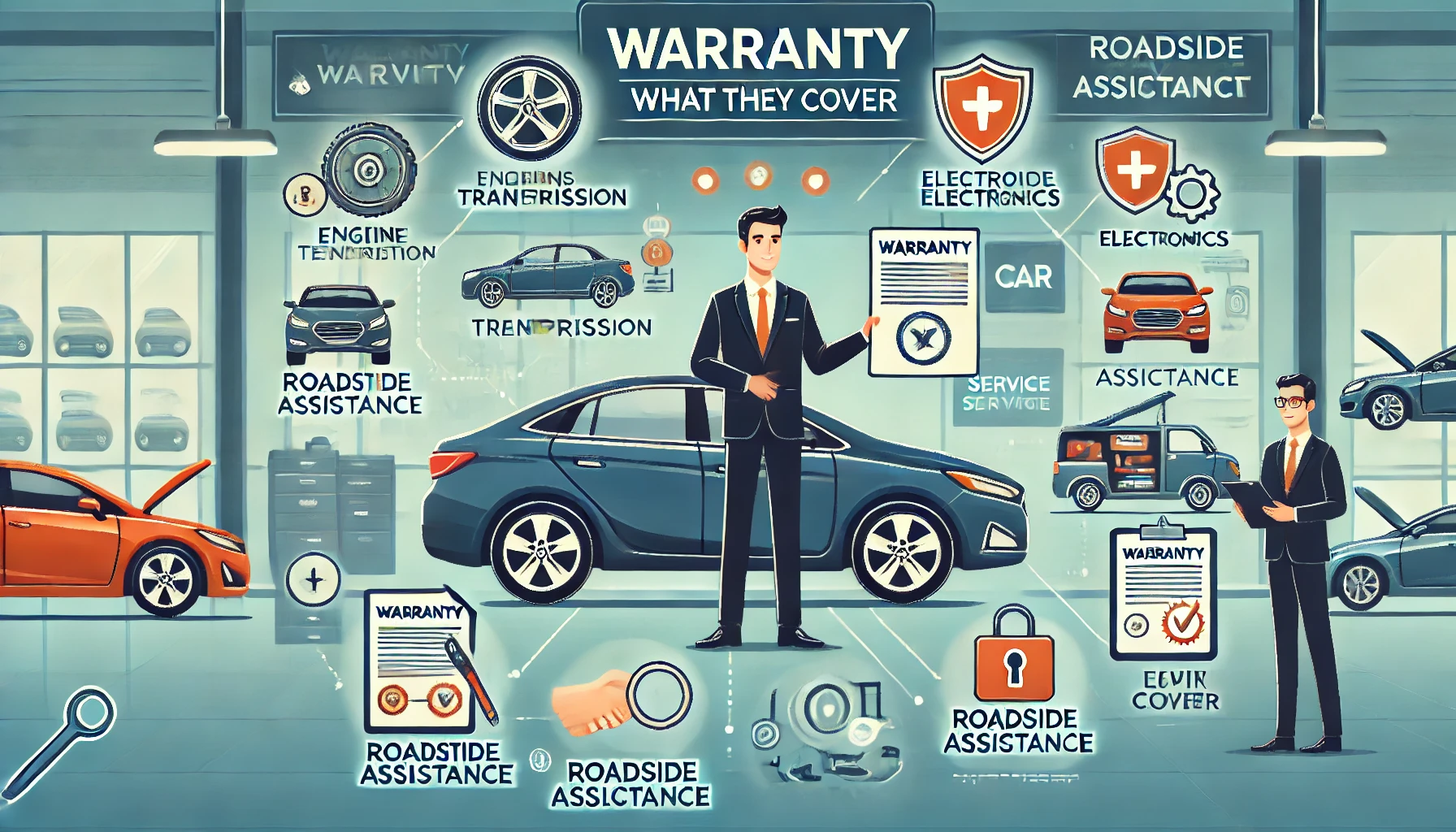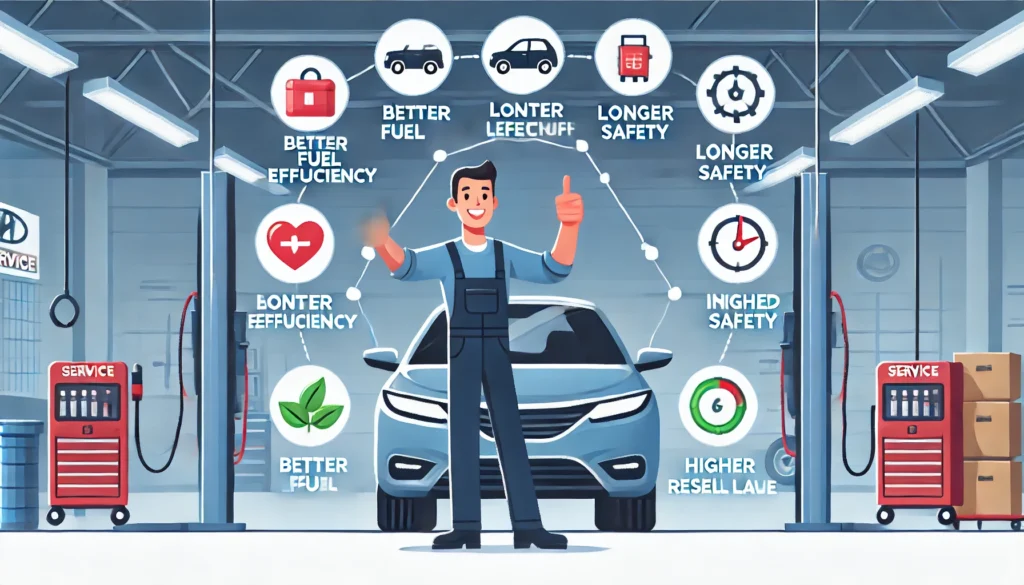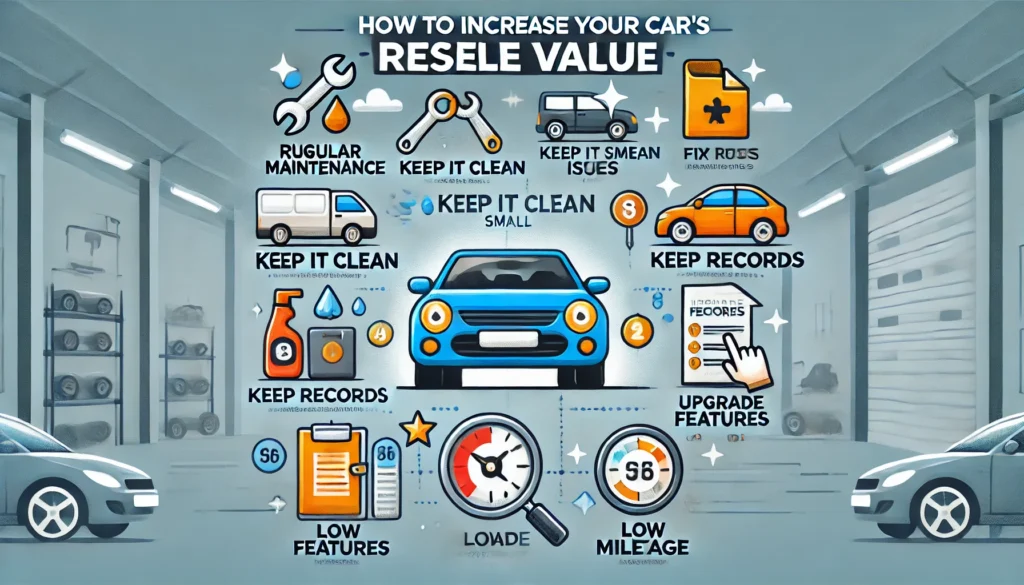I
Introduction
It can be a lifesaver when something goes wrong with your vehicle. They offer peace of mind and financial protection against unexpected repairs. However, the details of what is covered and what isn’t can be confusing. Understanding your autocar warranty thoroughly will help you avoid surprises and ensure you get the most out of it.
What is a Car Warranty?
A car warranty is a contract between the vehicle manufacturer (or dealer) and the car owner, promising to cover the cost of certain repairs or replacements during a specified period. Think of it as a safety net, ensuring that if something goes wrong with your car within the warranty period, you won’t be left footing the bill alone.
Types of Car Warranties
Car warranties come in several forms, each offering different levels of coverage. Here’s a breakdown of the most common types:
Manufacturer’s Warranty
The manufacturer’s warranty, often called a factory warranty, comes with every new car. It typically covers most parts and systems of the vehicle for a specified period or mileage, whichever comes first. Notably, this warranty is explicitly designed to provide comprehensive coverage during the initial years of ownership.
Powertrain Warranty
This warranty covers the engine, transmission, and other components that make the car move. It’s usually longer than the manufacturer’s warranty and is crucial for covering major mechanical parts. In fact, the powertrain warranty is particularly significant since it addresses some of the most expensive repairs a car owner might face.
Bumper-to-Bumper Warranty
Also known as a comprehensive warranty, this covers almost everything between the front and rear bumpers of the car. However, it excludes wear-and-tear items like brake pads and wiper blades. To clarify, while this warranty is extensive, it does not cover items that naturally degrade over time.
Extended Warranty
An extended warranty, or service contract, is an additional warranty you can purchase to extend coverage beyond the original warranty period. These can be bought from the manufacturer or third-party providers. Indeed, extended warranties can be particularly valuable for long-term peace of mind.
Corrosion (Rust) Warranty
This warranty covers rust damage to your car’s body panels. Coverage varies by manufacturer but usually lasts several years. Explicitly, this is important for those living in areas where roads are salted during winter.
Emissions Warranty
Required by law, this warranty covers repairs needed to ensure the vehicle meets federal emissions standards. For this reason, it is a mandatory inclusion in all new vehicle warranties.
What Do Car Warranties Cover?
Understanding what your car warranty covers can save you time and money. Here are the typical inclusions:
Parts and Labor
Most warranties cover the cost of parts and labor for repairs to defective components. This can include anything from the engine to the electrical system. In general, this is the core of what most warranties will address.
Mechanical and Electrical Systems
Coverage usually extends to all major mechanical and electrical systems, ensuring that you don’t have to worry about expensive repairs for these critical parts. Significantly, this coverage can prevent major financial burdens due to unforeseen mechanical failures.
Engine and Transmission
The engine and transmission are among the most expensive parts to repair. Warranties typically cover these components, protecting you from major financial burdens. In other words, these warranties can save you thousands of dollars.
Air Conditioning and Heating
These systems are essential for comfort and safety. Warranties often cover repairs to these systems, including parts like the compressor and blower motor. Especially during extreme weather conditions, having these systems covered can be a relief.
Infotainment Systems
Modern cars come with complex infotainment systems that can be costly to fix. Some warranties include coverage for these electronics. Notably, the inclusion of such systems highlights the evolving nature of car warranties to meet modern needs.
What is Not Covered by Car Warranties?
Warranties have limitations, and it’s important to know what is not covered to avoid misunderstandings.
Regular Maintenance
Routine maintenance such as oil changes, tire rotations, and brake pads are not covered under most warranties. These are considered the owner’s responsibility. As much as regular maintenance is crucial, it falls outside the purview of most warranties.
Wear and Tear Items
Items that wear out over time like tires, brake pads, and wiper blades are not usually covered. In other words, these parts are expected to be replaced periodically at the owner’s expense.
Accidental Damage
Damage caused by accidents, misuse, or neglect is not covered by car warranties. This includes issues resulting from car accidents, vandalism, or using the car in ways not intended by the manufacturer. Due to the nature of these damages, they are explicitly excluded.
Modifications
Any modifications you make to your car, like aftermarket parts or performance enhancements, can void your warranty if they cause damage. Conversely, sticking to original manufacturer parts helps maintain the warranty’s validity.
How to Make a Warranty Claim
Making a warranty claim can seem daunting, but following these steps can simplify the process:
Read Your Warranty Document
Before you need to make a claim, familiarize yourself with the terms and conditions of your warranty. Know what’s covered and what’s not. I hope that understanding these details will make the process smoother.
Keep Records
Maintain records of all maintenance and repairs. These can be crucial when making a claim to prove that you’ve taken proper care of your vehicle. By all means, meticulous record-keeping is beneficial.
Visit an Authorized Dealer
Always take your car to an authorized dealer or repair center for warranty work. Unauthorized repairs can void your warranty. In the event of a problem, this step is critical.
Describe the Problem Clearly
When you bring your car in, clearly describe the issue to the service advisor. Be as detailed as possible to help them diagnose and fix the problem. In fact, clear communication can expedite the repair process.
Extended Warranties: Are They Worth It?
Extended warranties offer additional protection but come at a cost. Here’s what to consider when deciding whether to buy one:
Cost vs. Benefit
Weigh the cost of the extended warranty against potential repair costs. If the warranty is expensive and you expect minimal repairs, it might not be worth it. On the other hand, if your car is prone to issues, an extended warranty could be a good investment.
Coverage
Check what is covered by the extended warranty. Some offer comprehensive coverage, while others are more limited. To clarify, not all extended warranties are created equal.
Provider Reputation
Research the warranty provider’s reputation. Look for reviews and ratings to ensure they are reliable and have good customer service. Markedly, a provider’s track record can impact your experience.
Your Vehicle’s Reliability
Consider your car’s reliability. If you own a car known for dependability, you might not need an extended warranty. Conversely, for cars with a history of problems, extended warranties can be very useful.
Common Misunderstandings About Car Warranties
Many car owners have misconceptions about warranties. Here are some common misunderstandings clarified:
All Repairs are Free
Warranties cover specific repairs, but not all. Routine maintenance and wear-and-tear items are usually excluded. Above all, it’s crucial to understand these limitations.
Any Mechanic Can Perform Warranty Repairs
Only authorized dealers or repair centers should perform warranty repairs. Using unauthorized mechanics can void your warranty. On the contrary, keeping to authorized services ensures protection.
Warranties Last Forever
Warranties have a time or mileage limit. Once this limit is reached, the warranty expires, and you are responsible for all repairs. Unlike what some might think, warranties do not offer indefinite protection.
Modifications Won’t Affect the Warranty
Modifying your car can void the warranty if the modifications cause damage. Always check your warranty terms before making changes. Notably, modifications are a common pitfall for many car owners.
How to Maximize Your Car Warranty
To get the most out of your car warranty, follow these tips:
Regular Maintenance
Keep up with regular maintenance as recommended by the manufacturer. This helps prevent issues and keeps your warranty valid. In case of warranty claims, regular maintenance records are essential.
Documentation
Keep detailed records of all services and repairs. This documentation is essential if you need to make a warranty claim. By all means, thorough documentation can smooth the claims process.
Authorized Repairs
Always use authorized dealers for repairs. This ensures the work is done correctly and doesn’t void your warranty. Due to warranty conditions, this is highly recommended.
Stay Informed
Regularly review your warranty terms and conditions. Stay informed about what is covered and what isn’t. As long as you are aware of your coverage, you can avoid unpleasant surprises.
The Importance of a Car Warranty
Car warranties provide valuable protection and peace of mind. Here’s why they are important:
Financial Protection
Repairs can be costly, and a warranty helps cover these expenses, protecting your budget. Above all, financial security is a primary benefit of having a warranty.
Resale Value
A car with a valid warranty can have a higher resale value. Buyers appreciate the added security of a warranty. In fact, this can notably enhance the attractiveness of your vehicle.
Peace of Mind
Knowing you’re covered for certain repairs reduces stress and anxiety, allowing you to enjoy your vehicle more. Because of this, many owners feel more confident on the road.
FAQs
What is the difference between a manufacturer’s warranty and an extended warranty?
A manufacturer’s warranty is included with the purchase of a new car and covers repairs for a specified period or mileage. An extended warranty is an optional coverage that you can buy to extend protection beyond the manufacturer’s warranty. Notably, the extended warranty offers prolonged coverage but at an additional cost.
Can I void my warranty by not following the maintenance schedule?
Yes, failing to follow the recommended maintenance schedule can void your warranty. Regular maintenance is crucial to keep your warranty valid. In case of non-compliance, claims may be denied.
Do all car warranties cover the same things?
No, coverage varies by warranty type and provider. Always read the warranty terms to understand what is included and what is excluded. Above all, being informed is essential.
Is it worth buying an extended warranty for a used car?
It depends on the car’s reliability, your financial situation, and the cost of the warranty. If the car is known for needing frequent repairs, an extended warranty might be worth it. Conversely, for a reliable used car, it might not be necessary.
Can I transfer my car warranty if I sell my car?
Many warranties are transferable to a new owner, but it depends on the warranty terms. Check with the warranty provider for specifics. Indeed, this can enhance the resale value of your car.
What should I do if my warranty claim is denied?
If your warranty claim is denied, review the denial reasons and the warranty terms. If you believe the denial is unjustified, you can appeal the decision or seek legal advice. I hope that taking these steps will help resolve the issue.
Conclusion
Understanding car warranties is essential for every vehicle owner. By knowing what is covered, how to make a claim, and how to maximize your warranty, you can save money and avoid frustration. Keep your vehicle well-maintained, stay informed about your warranty terms, and don’t hesitate to use your coverage when needed. A good warranty is a valuable tool that ensures your car remains reliable and enjoyable to drive.


